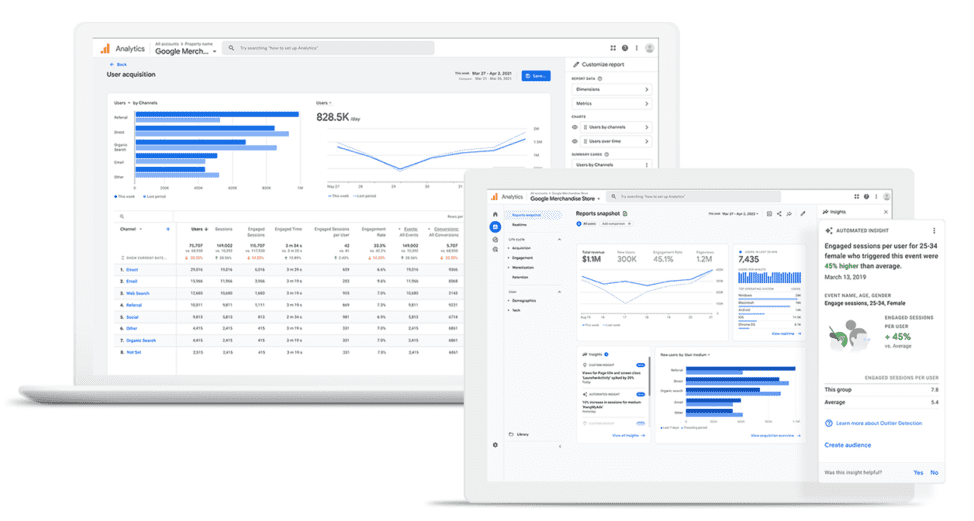Say goodbye to Google Analytics
Google recently dropped a big update regarding their decade old analytics suite – Universal Analytics.
We knew it was coming, but now it is official!
Google will stop processing new hits on their Universal Analytics platform on July, 1st, 2023 and on their Universal Analytics 360 platform on October, 1st, 2023.
Any traffic data that has been previously stored on the platforms will only be available for 6 months after the platform cut off dates.
The switch to Google Analytics 4 comes as we move into a cookieless internet with a focus on first-party data rather than third-party data.

As we gradually lose the need for cookies, our measurement and tracking requirements will need to change. Unlike Universal Analytics, GA4 doesn’t rely on cookies but rather on event based data to capture user analytics. It also has new built-in measures, out of the box which comply with stricter internet privacy regulations such as no longer storing user IP addresses.
So what does this mean for your website and your business and how can you prepare for this?
If you haven’t already set up Google Analytics 4 (GA4) and configured it to run alongside Universal Analytics, tracking the goals and metrics that are important to you, then now is the time to act. Do not wait to get closer to the cut off date! The reason for this is that you will lose out on historic data in GA4 from now to the cut off date and this can be a crucial aspect for historical benchmarking and analysis.
Generally, for marketers and business owners that have been working with Universal Analytics over the past decade, it’s often hard to up and move to a completely new platform and a new user interface. But now is the time to familiarise yourself with the new platform, as come July 2023, you won’t have a choice and you will be forced to transition.
Being proactive and acting now by running GA4 parallel to Universal analytics will ensure that you have access to just over a year’s worth of historical data to benchmark and compare to. Another crucial element you have to consider though is the historic data from previous years and how you will handle and analyse this in the future.
We recommend that you immediately export your entire historical data up to the day that you deploy GA4. Google offers the exports for individual reports in the following formats
- CSV
- TSV
- TSV for Excel
- Excel (XLSX)
- Google Sheets
Otherwise, if you have development capability and resources you can use the Google Analytics Reporting API to export data.
For businesses and websites that are currently advertising through Google Ads and have their Universal Analytics and Google Ads linked and are currently passing data such as audiences and goals, there is some work to do here also.
Universal Analytics data will also stop flowing to Google Ads after July 1, 2023. So this will also affect your Google Ads campaigns if you are bidding on imported Universal Analytics goals or eCommerce transactions, using a Universal Analytics audience in your campaigns or importing Universal Analytics site metrics. Our recommendation alongside Google’s is to migrate all your imported metrics, goals and audiences to GA4 and sync that with Google Ads Immediately.
This is no doubt one of the biggest changes Google has announced in this space for a while and can be quite daunting for some and a hefty project for websites with larger implementations.
Picture this scenario – You run a successful e-commerce store with 5 years of valuable data which you have optimised your marketing strategy to deliver you maximum ROI and year on year growth. And come next July, you will lose that data and won’t be able to benchmark against it once you migrate to GA4 anymore.
Our recommendation is to be agile and move fast with this. Create a Universal Analytics to GA4 migration plan and work with your marketing team or digital agency to implement this as soon as possible.
Emad Raad
Head of Digital
![]()

